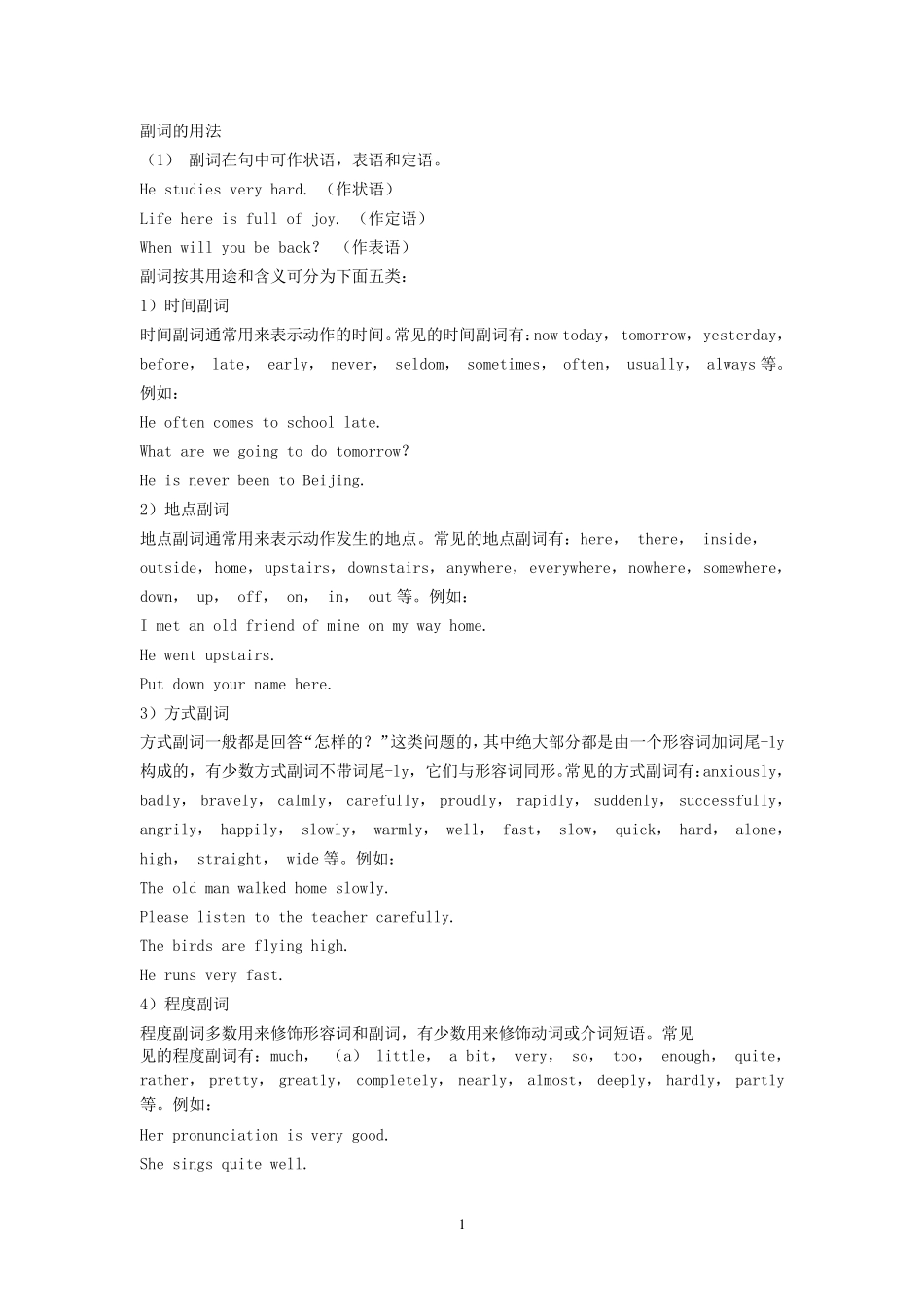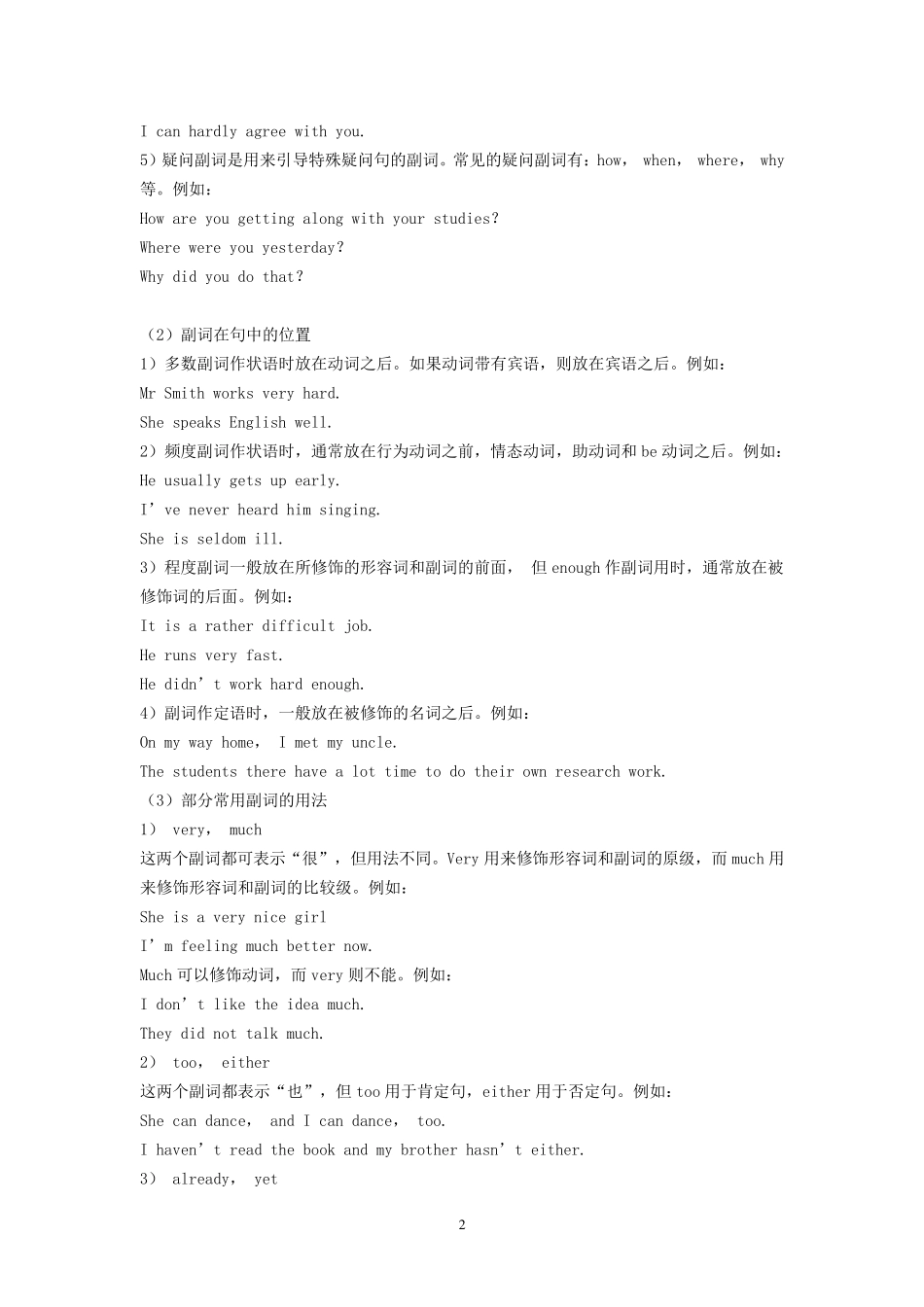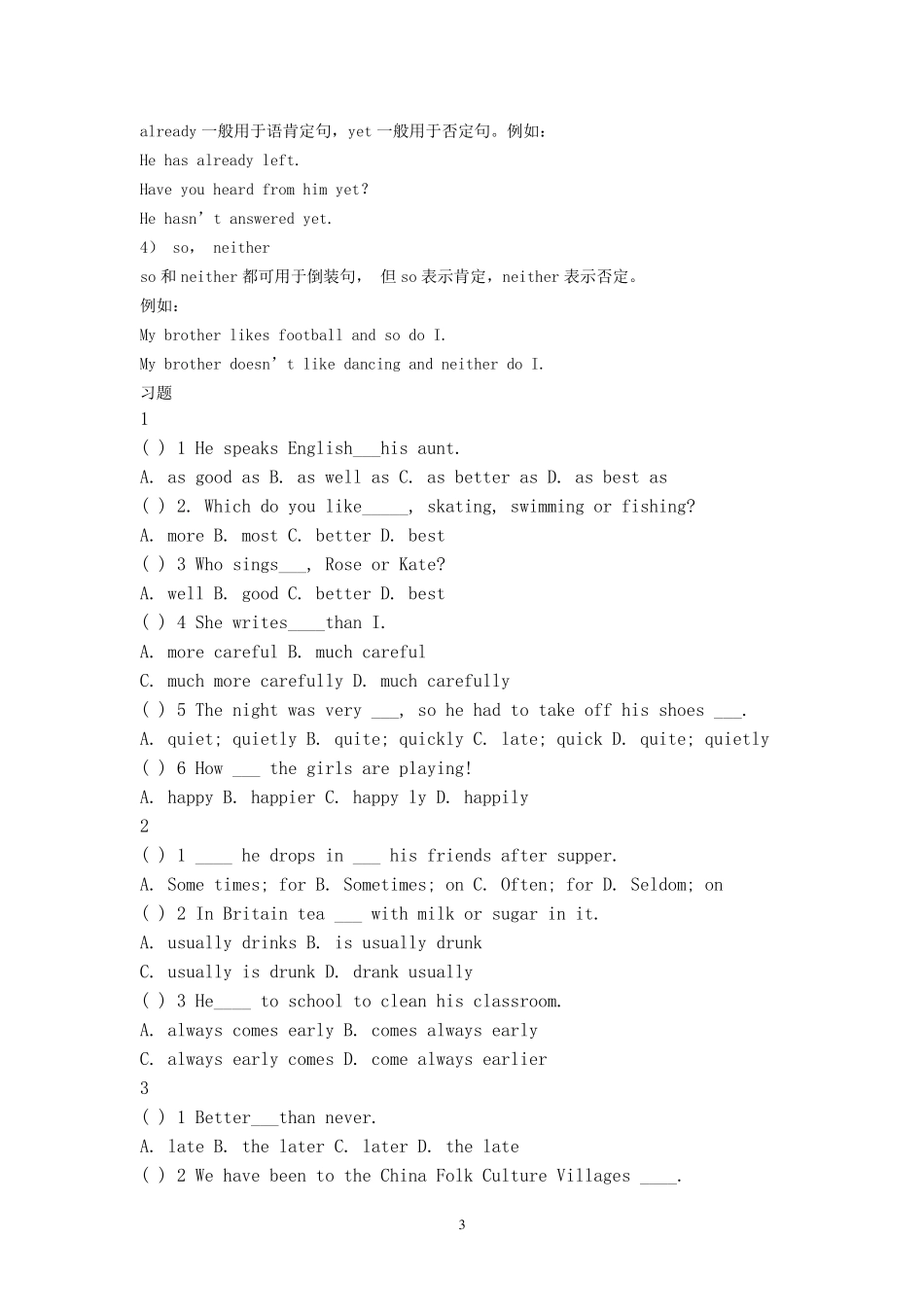1 副词的用法 (1) 副词在句中可作状语,表语和定语。 He studies very hard. (作状语) Life here is full of joy. (作定语) When will you be back? (作表语) 副词按其用途和含义可分为下面五类: 1)时间副词 时间副词通常用来表示动作的时间。常见的时间副词有:now today, tomorrow, yesterday, before, late, early, never, seldom, sometimes, often, usually, always 等。例如: He often comes to school late. What are we going to do tomorrow? He is never been to Beijing. 2)地点副词 地点副词通常用来表示动作发生的地点。常见的地点副词有:here, there, inside, outside, home, upstairs, downstairs, anywhere, everywhere, nowhere, somewhere, down, up, off, on, in, out 等。例如: I met an old friend of mine on my way home. He went upstairs. Put down your name here. 3)方式副词 方式副词一般都是回答“怎样的?”这类问题的,其中绝大部分都是由一个形容词加词尾-ly构成的, 有少数方式副词不带词尾-ly, 它们与形容词同形。常见的方式副词有:anxiously, badly, bravely, calmly, carefully, proudly, rapidly, suddenly, successfully, angrily, happily, slowly, warmly, well, fast, slow, quick, hard, alone, high, straight, wide 等。例如: The old man walked home slowly. Please listen to the teacher carefully. The birds are flying high. He runs very fast. 4)程度副词 程度副词多数用来修饰形容词和副词,有少数用来修饰动词或介词短语。常见 见的程度副词有:much, (a) little, a bit, very, so, too, enough, quite, rather, pretty, greatly, completely, nearly, almost, deeply, hardly, partly等。例如: Her pronunciation is very good. She sings quite well. 2 I can hardly agree with you. 5)疑问副词是用来引导特殊疑问句的副词。常见的疑问副词有:how, when, where, why等。例如: How are you getting along with your studies? Where were you yesterday? Why did you do ...


